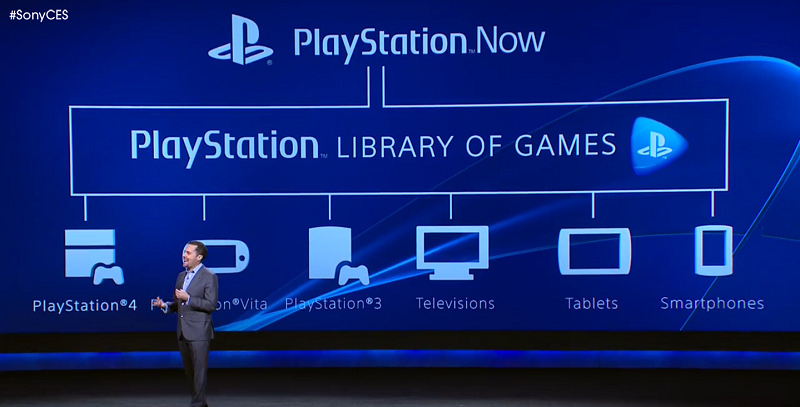 NEWS
NEWS
 NEWS
NEWS
 NEWS
NEWS
At the end of 2014, Sony Corp announced that PlayStation Now game streaming would soon be arriving on non-Sony devices, and now that day has finally arrived. PlayStation Now subscribers can now stream PlayStation games directly through select Samsung Smart TVs without having to own a Sony device at all.
“Since we first introduced PlayStation Now at CES 2014, our vision has been to open the world of PlayStation to the masses by offering the service on the devices they use every day,” Sony’s Masayasu Ito said in December. “Partnering with Samsung is a key step toward realizing this vision, as we can reach a broader audience of consumers who may not own a PlayStation console to show them why gaming with PlayStation is such a unique and amazing experience.”
Users can either pay for a monthly subscription to PlayStation Now, which provides unlimited access to over a hundred games, or they can pay to rent individual titles for a limited time.
At the moment, PlayStation Now supports only PlayStation 3 games. Sony does not have any current plans to support games from other platforms like PlayStation 2 or PS Vita, but the company said it “will continue to monitor feedback and interest in content from other platforms.”
With game streaming becoming increasingly popular thanks to services like PlayStation Now and devices like smart TVs and Nvidia Shield, the video game industry could soon see a titanic shift that could disrupt the console gaming market. Without the need for proprietary hardware, game systems like PlayStation and Xbox could become little more than digital distribution platforms that are only distinguished by their game libraries.
This phenomenon can already be observed in PC gaming with competing services like Steam, Origin, Uplay, and GOG Galaxy. In the future, the difference between an Xbox game and a PlayStation game might only be the online storefront from which the game was purchased.
PlayStation Now’s subscription model could also change the way games are sold. The Software as a Service movement has already disrupted enterprise and consumer software, and video games could be next on the list.
Support our mission to keep content open and free by engaging with theCUBE community. Join theCUBE’s Alumni Trust Network, where technology leaders connect, share intelligence and create opportunities.
Founded by tech visionaries John Furrier and Dave Vellante, SiliconANGLE Media has built a dynamic ecosystem of industry-leading digital media brands that reach 15+ million elite tech professionals. Our new proprietary theCUBE AI Video Cloud is breaking ground in audience interaction, leveraging theCUBEai.com neural network to help technology companies make data-driven decisions and stay at the forefront of industry conversations.